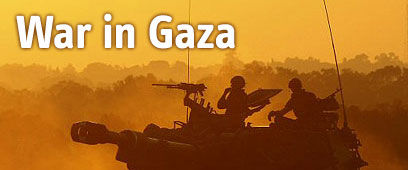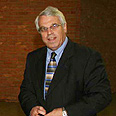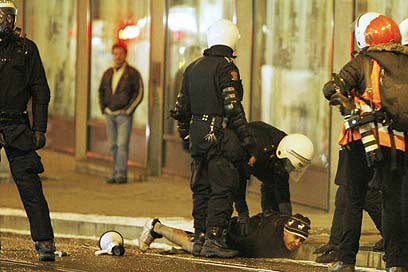


When almost every nation –from the Czech Republic and Turkey to France – asks to become involved in Israeli and regional affairs, it begs the question: Why is the world so curious about Israel?
The phrase "international opinion" is bounced around among decision-makers and the public alike, but does it mean we're really on the map or merely slaves to the idea of being 'a light among nations'? Is the average citizen in Norway or Canada really interested in events in Gaza or Sderot?
"It perhaps doesn't interest the individual citizen, but it definitely interests the elites in these nations, the urban intellectuals: the press, authors, academics," Professor Shlomo Ben-Ami, a former acting foreign minister, told Ynet. "This is less due to the horror an average person feels when witnessing death and gore on television and more because Israel is involved in the matter."

Arrest during violent rally in Norway against Gaza op (Photo: Reuters)
"I always asked the Palestinians if they truly believe that the world takes an interest in them. After all, when Arabs kill Arabs, it doesn't provoke worldwide protests. If the Egyptians or Jordanians were attacking them, would anyone in the world be up in arms?"
"Only when Jews are involved does public interest rise, and this is because there is a deeply entrenched global syndrome regarding Jews," Ben-Ami stated.
"When the world sees that we are involved in a conflict in which innocents get hurt, it releases some tension because, 'see, it also happens to them.' The world's desire to assuage their guilt (regarding centuries of mistreating Jews) is so vast that it causes them, more than once, to jump to dangerous conclusions," added Ben-Ami.
"Why are they so quick and hasty to use a word like genocide? Because they want to pay us back in kind." Ben-Ami said, recalling how Nobel winner Jose Saragamo had referred to Operation Defensive Shield as 'Auschwitz' during a visit to Jenin. "How can someone even speak in such terms?" he asked.
"In Sri Lanka's crisis, some 70,000 people were killed – more than all of the fatalities during all of Israel's wars combined. The world is barely aware of (the crisis Sri Lanka). There's a lot of cynicism and double-speak when it comes to us," he said.
A 'unique' conflict
Dr. Alon Liel, Israel's former ambassador to Turkey and director-general of the Foreign Ministry, claims that the intense international involvement derives from the fact that the world understands that the situation between Israel and the Palestinians is not like other regional conflicts."It's a unique conflict. It can't be compared to conflicts like the one in Cyprus or the Kurds in Turkey. This is a western-Arab conflict, which will always be center-stage because it threatens the west's peace of mind. Add to this a high casualty count, a lot of pictures and asymmetry of troops and it creates support for the underdog – and a lot of press coverage the next day," he explained.
According to Liel, the race to find an Israeli-Palestinian solution is, first and foremost, a race for prestige. "Nations who are known as mediators or negotiators of hostage exchanges receive a lot of respect and headlines," he said.
"Every war in the Middle East, including the last one, receives media attention world wide and that's why every politician who visits is granted media attention. Everyone wants a piece of the pie."
Liel believes that French President Nicolas Sarkozy and the Czech Republic's Foreign Minister, Karel Schwarzenberg, who currently holds the EU presidency, are merely the two lastest examples of this phenomenon.
"Any nation who believed it had the capabilities to resolve this conflict would have gotten involved like France. Fortunately, there aren't a lot of international actors who are respected by both sides," he said.
Liel stated that international opinion continues to serve as a consideration regarding military means. "Today, when you plan a war, you don't only consider the enemy. You have to think of how the news headlines will look and of when you're catching the international community," he said, noting that Operation Cast Lead was launched during the Christmas holidays.
Ben-Ami summarized: "It's important to accept the fact that our conflicts will always involved additional actors. It will never just be us vs. the Palestinians. This is not a regular war. This is a war for public opinion."















